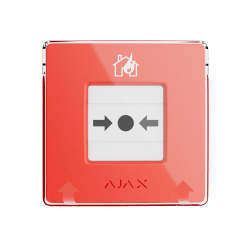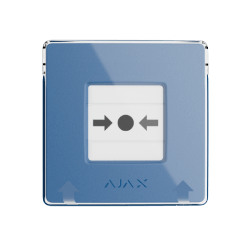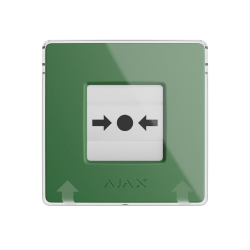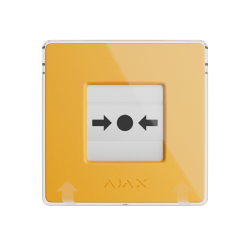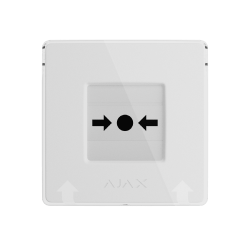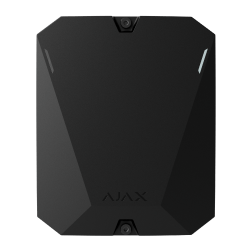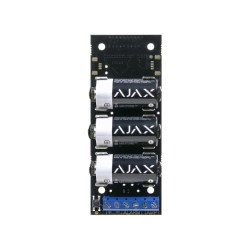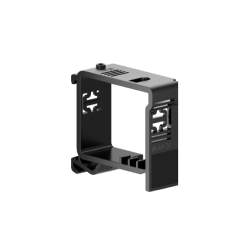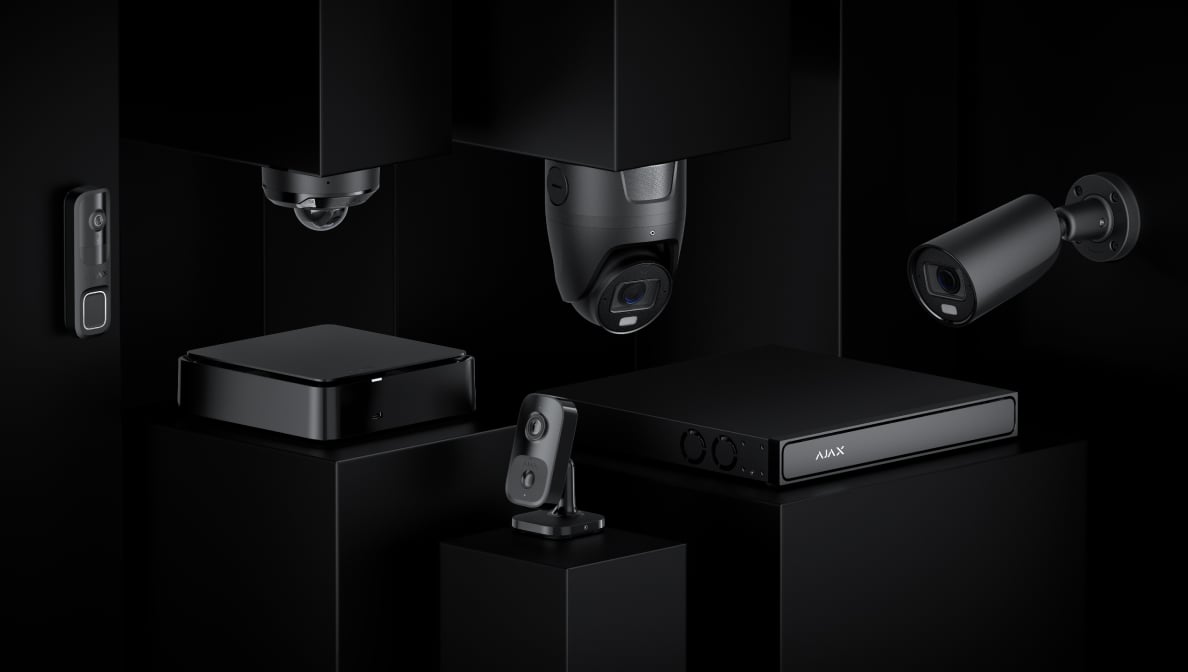
Fire and life safety
Wireless residential fire detection and alarm system
Reliable, efficient, and one of a kind
Ajax residential fire and life safety devices combine patented technologies, connectivity, ease of installation, and compliance with the most stringent international regulations. With three types of power supply and five sensor combinations, the detectors cover every market need, whereas wireless buttons speed up response to threats. While powerful on their own, the devices are almost unbeatable as part of a larger system united by an Ajax hub. The combined solution can provide users with visual verification of fire alarms and automate response to threats.
Residence Line | Fire and life safety
Fire detectors
View:
Manual call points
Buttons & key fobs
Hubs
Range extenders
Integration modules
Compatibility
In an Ajax system, you can combine devices of all product categories: Intrusion protection (both Superior and Baseline), Video surveillance, Fire and life safety, or Comfort and automation. Create the system to suit your needs and manage it in a single interface.
Tools
Radio communication range calculator
Assess the communication quality between a device and a hub (or range extender), considering possible interferences
Battery life calculator
Estimate a device’s battery lifespan, considering communication quality, ambient factors, and user settings
Ajax device compatibility
Find out which hub or range extender is compatible with a specific device, product group, or product line
Other Ajax product categories
Fire sensors in the security system
Security system fire detectors are devices that detect the signs of a fire starting in a guarded room. Several fire sensors are installed at the facilities, which monitor the temperature rise or the appearance of smoke. All sensors of this type are connected to the same network, which activates fire extinguishing systems, informs users of the security system about the incident, informs the security company or fire department, or all of these actions.
Types of fire detectors
Security alarm fire detectors are autonomous — they operate from an independent power source, often equipped with their own siren, which reports a fire alarm with sound or light. The second type of fire sensors provides for their use as part of a security system. The sensors are connected to the alarm control panel, which, after an alarm, turns on the sirens and informs users about the incident. Fire sensors by type of operation are of the following types:
Smoke detector
This type of fire detector is equipped with a small chamber through which room air passes. Infrared radiation is supplied inside, and a light-sensitive sensor is located at the exit. When smoke passes through the chamber, infrared rays are reflected from it and hit the sensor. The smoke sensor analyzes the data and responds to deviations from the norm. With this reaction to a fire, it can be identified in the early stages, since smoke can be released for several hours.
Sensors with a reaction to changes in air temperature
The principle of operation of such a fire detector is based on the optical analysis of thermal radiation. Such devices, using IR cameras, analyze thermal radiation and detect an excess of the norm, after which they inform users about the incident.
Fire detectors for the security system from Ajax
For fire safety in a guarded room, Ajax offers wireless, addressable sensors that raise an alarm when a sudden increase in temperature or smoke is detected. Also, you can use a fire detector with an additional CO sensor in order to detect a carbon monoxide leak in time.
The principle of operation of Ajax fire detectors
Ajax fire detectors combine a thermal sensor and a smoke detection sensor. In this way, the user will avoid situations where the fire system ignores a fire without smoke. The thermal sensor of the detector will work if the temperature limit reaches +60°С and if the room temperature rises by 30°С in 30 minutes or less.Fire detectors as part of the Ajax alarm system will always report a danger, regardless of the presence of power or communication with the alarm control panel, thanks to two pre-installed batteries and built-in sirens. Fire detectors of the Ajax security system inform system owners about the incident by messages in the mobile application, calls, SMS messages and sirens at the scene.Several fire detectors connected to the control panel will raise an interconnected alarm if at least one device is triggered. Thus, all those present in the building learn about the fire in time. The Ajax security system can be connected to the central monitoring station of a security company. Then, in the event of a fire alarm, a rapid response team will be sent to the facility to check and eliminate the incident.
Ajax fire detectors
The line of fire detection sensors from Ajax includes the following sensors:
- FireProtect is a wireless fire detector with a heat sensor. The device will detect smoke with a photoelectric sensor, and fire with a thermal sensor. The fire detector can work without connection to the alarm central and has a built-in siren.
- FireProtect Plus is a wireless fire detector, additionally equipped with a carbon monoxide sensor with a built-in siren and the possibility of autonomous operation.
Features of Ajax fire detectors
Ajax fire detectors have the following features:
Secure communication
Ajax fire detectors transmit information to the control panel of the security system via the Jeweller two-way radio protocol. This technology protects the transmitted data with strong encryption. If there is interference on the radio or an attempt is made to jam the connection, Ajax changes the radio frequency and notifies system users and the security company about the incident.
Compliance
The FireProtect and FireProtect Plus fire detectors are equipped with different sensors for Superior performance. Also, the devices are protected from false alarms in accordance with fire safety requirements. The sensors are certified, which confirms their effectiveness in various conditions. The HazeFlow digital algorithm checks for smoke before an alarm is triggered.
Health monitoring
The user of Ajax fire detectors will know in advance about the need to replace the batteries. The sensors also indicate the need to clean the smoke chamber from dust with an audible signal. The owner of the security system will receive an additional notification in the form of SMS and in the Ajax application.





